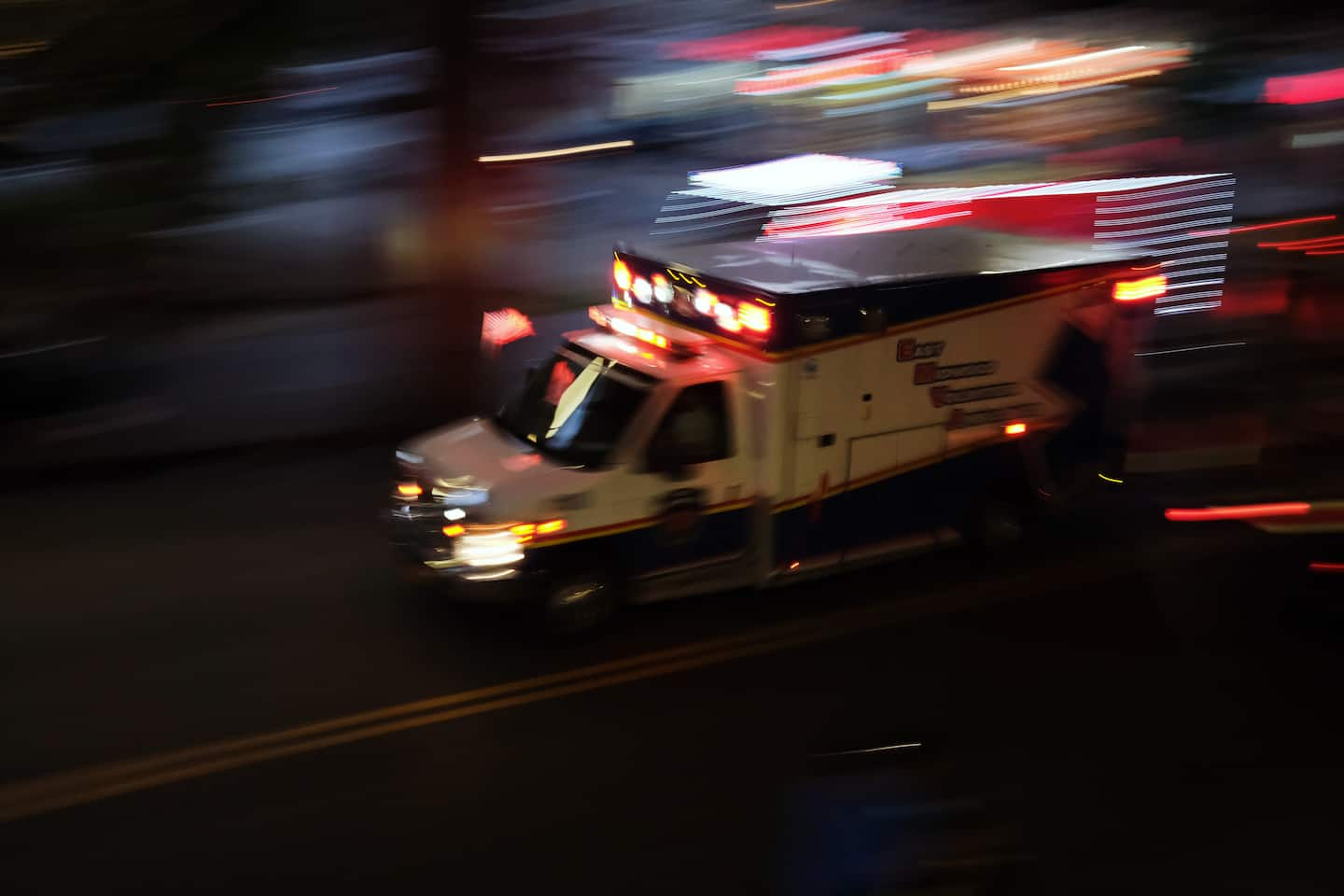My elderly father spent 36 hours searching for urgent hospital care. It was entirely preventable.

Not long ago, I awoke at 12:20 a.m. to a phone call no daughter wants to receive. My elderly father — a dementia patient who resides at a memory care facility in Wisconsin Rapids — had fallen, hit his head and was bleeding profusely. He was on his way to the local emergency room, all alone.
After waiting hours to see a doctor, he was sent back to his nursing home at 6 a.m. following a short observation and a “we think he’s fine” diagnosis. However, his condition soon worsened and he returned to the ER. He didn’t know his name, he couldn’t respond to commands and he couldn’t stay awake. On his second night in the ER, the wait to see a doctor was more than six hours. Soon after my dad arrived, ambulances began lining up to unload their patients.
I rushed to my hometown and slept in my childhood bedroom just blocks from the hospital, as I couldn’t join my father because of covid-19 protocols. He waited to be seen, scared and alone, asking for his family and not understanding why his wife and daughters weren’t with him. I heard siren after siren heading toward the hospital overnight, but I didn’t receive any updates on his condition because the hospital staff was so overwhelmed.
In the span of 36 hours, my dad spent approximately 16 hours in the ER. He took five ambulance rides across the region. He received four diagnoses at three separate hospitals. He had zero family members present. I received zero calls from the hospitals without me calling them first. My father’s condition worsened due to the stress and anxiety of being transported, with no understanding of what was happening or why.
I don’t fault the hospitals or medical staff for any of this; they did the best they could under incredibly challenging circumstances. But I do blame covid-19.
No, that’s not right. I blame the people who haven’t taken covid-19 seriously.
I blame the people who refuse to wear masks at the gas station, the grocery store, the political rally. The people who have knowingly — proudly — sent their children to school after a covid-19 diagnosis. The people who laugh at science — who cram into the bars, fill the church pews and have parties in their backyards without masks or social distancing. The people who think safety protocols don’t apply to them.
American hospitals generally operate close to capacity — they’re not empty buildings that wait for a pandemic. When a crisis hits, it only takes a handful of extra patients to throw them into panic mode and bring the health-care system to its knees. As a result, medical professionals are struggling to respond not only to covid-19 but also to car accidents, pneumonia, gunshot wounds, broken bones. Everyone suffers.
This is happening right now in Wisconsin and elsewhere across the nation. This is happening to our parents, our spouses, our children, our friends. And it is all preventable.
My dad lost 36 hours being shuffled between facilities that couldn’t admit him. If not for covid-19, however, he probably would have had a bed at the local hospital right away. He would have received the proper care immediately. His family would have been there to reassure him. And I would not have wondered when I would next see my father to say, “I love you.”
It would be so easy for each of us to do our part and change the course of this pandemic. Things would be different if we wore our masks and stayed home as much as possible. If we assumed we were asymptomatic and potentially spreading the virus. If we took advice from medical professionals instead of politicians. If we acted with compassion instead of playing roulette with a contagious virus.
Even if you don’t contract covid-19, you might need medical attention. Hospitals are full in much of Wisconsin and elsewhere. This unpleasant fact means people can’t get the care they need, regardless of whether they have covid-19.
We all have covid-19 fatigue. I know. I have it, too. We’re tired of changing routines, canceling vacations, missing family events, attending school and meetings via Zoom. But, as much as we hate it, sacrifice is the only way to return to normalcy.
If we keep on like we have been, your loved one could be the next person taking five ambulance rides before receiving proper medical treatment. Consider yourself warned.
Read more:






